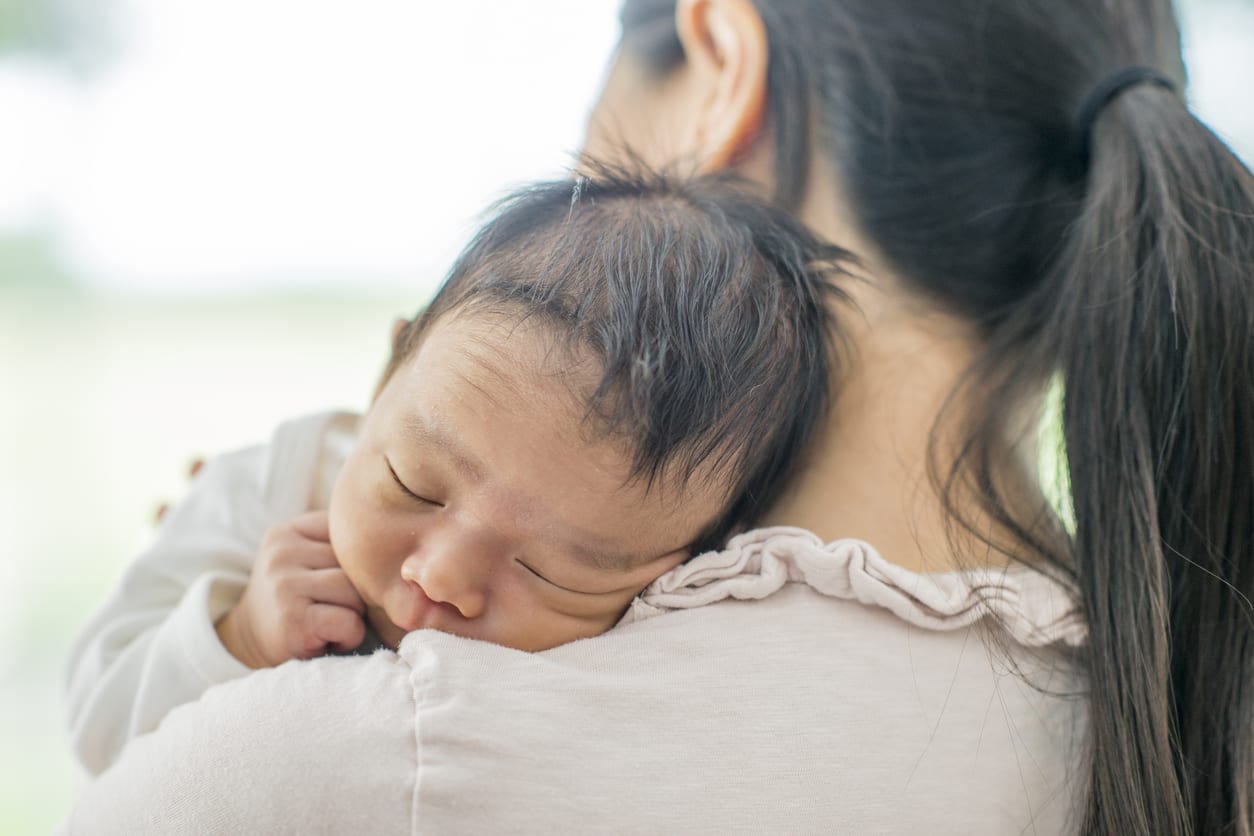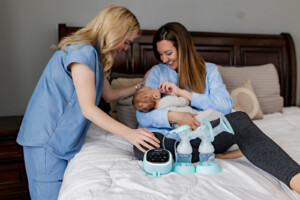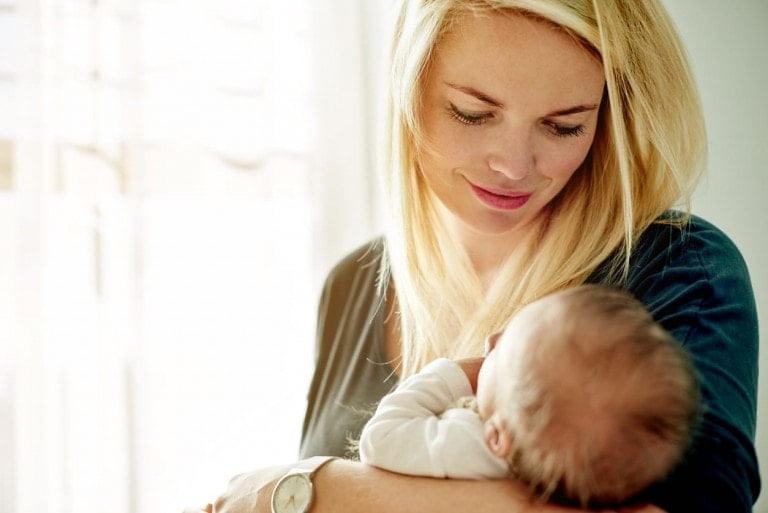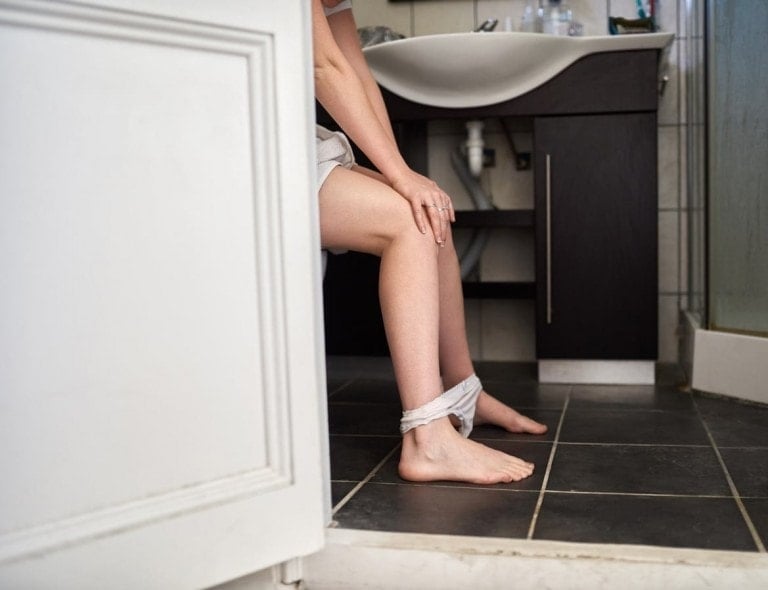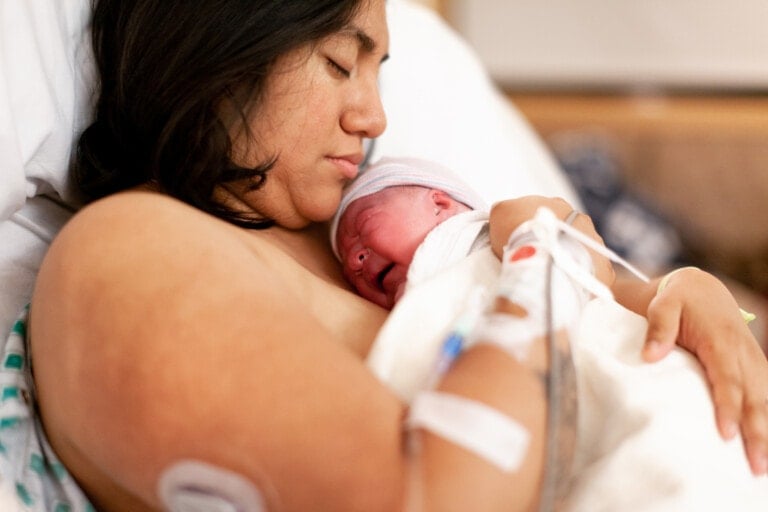Most expecting families are so consumed with preparing for labor and birth that they barely spend time thinking about or preparing for life with a baby. Similar to how there are things to do during your first trimester, second trimester, and third trimester, there are things that need to get done in the “fourth trimester,” too – the postpartum period. Postpartum is the first three months (12 weeks) after baby is born. This can be a beautiful yet challenging time for many moms. Here’s a postpartum checklist to help you have a good start to life with your new baby.
Postpartum Checklist: What to Do After Baby is Born
Here are 18 things you need to do after you have a baby:
1. Add Baby to the Insurance Plan
Call your insurance and add your daughter or son if you haven’t done this already. Medical bills start adding up from the moment a baby is born, so having your baby on your plan will save you some major headaches.
2. Apply for Baby’s Birth Certificate
If you had your baby in a hospital, most hospitals would submit the birth certificate paperwork if you agreed to it. You will receive your baby’s Social Security card in the mail, and from there, you can go online to order hard copies of your baby’s Birth Certificate. Be sure to request two copies when you do. Also, make sure you receive their Social Security card in the mail and store it somewhere safe when you do.
If you have your baby at home or at a birth center, your midwife will submit the paperwork instead of the hospital. You’ll then receive your baby’s Social Security card in the mail and will be able to order a Birth Certificate online!
3. Add Baby to Your Will and Other Legal Documents
This can be a sensitive and emotional topic to discuss with your partner, but it’s necessary. If you haven’t already done so, create a will and sign up for a life insurance plan. It’s important to have this even when they’re newborns. Learn why having a will and life insurance for your family is important.
4. Contact Work for Fmla/Short-Term Disability
Once you have given birth to your baby and settled down a bit, it’s time to contact your office to ensure everything is set up for you to receive any maternity leave or paternity leave benefits you’re entitled to. This will be different for everyone, so check what benefits you have.
5. Call a Newborn Photographer
If you wanted newborn photos, hopefully, you contacted a newborn photographer during your pregnancy and reserved their time to photograph your newborn. Now that your baby is here, it’s time to let them know and schedule your photo session.
6. Order, Address, and Mail Out Birth Announcements
It’s time to spread the good news! Several sites offer gorgeous pre-designed templates for your baby’s birth announcement.
7. Write Thank You Notes
Even though you sent out your thank you notes from your shower, you may have several people you want to thank now. Write a thank-you note to your doctor or midwife, nurse, doula, friends, and family who have been helping you postpartum. They will be so grateful for those kind written words of thanks.
8. Start Pumping
Building up a freezer stash of breastmilk is excellent, especially if you plan to return to work. This isn’t mandatory, but pumping once a day (in the morning preferably—when you produce the most milk) after you’re finished feeding your baby can help increase your supply and give you some much-needed backup stock.
Helpful resources:
9. Do Tummy Time
Even newborns are supposed to have daily tummy time (time spent on their bellies to develop strong neck and back muscles, among other benefits). Even when they are just days old, it’s good to have them lay on your chest so they can try and practice lifting their head to look at you or to nurse.
10. Get Outside
I cannot tell you enough how nice it is to leave the house. Some fresh air makes a difference and can give you the much-needed energy boost to handle your day. Make it a point to leave the house once daily, even if just walking around the block.
11. Continue Taking Your Postpartum Vitamins Daily
Your body has a lot of healing to do after giving birth, and it’s common for women to have vitamin deficiencies, resulting in fatigue, an aching body, and difficulty thinking clearly.1 Postpartum vitamins can help you.
12. Eat Healthy Snacks and Meals
Your body is healing and needs only the best. If breastfeeding, it’s also important to provide the best nutrients to your child. Eating healthy snacks, fruits, vegetables, and lean protein will help make you feel so much better. Consider stocking up on these postpartum snacks.
13. Drink Lots of Water
For recovery and breastfeeding, you need to be drinking lots of water. Your postpartum body is undergoing many changes, and water will help — it will keep your bowels regular and soft and help with your milk production.
14. Take a Shower and Get Ready
Showering and a little lip gloss will make you feel fresh and human again.
15. Rest
You just gave birth to a baby. Don’t push yourself to do more than you must. This is the time that you need to rest. You don’t want your recovery to last longer than necessary.
16. Use Your Village
If you need help, get it! There is no shame in needing your mom, a friend, a neighbor, or anyone to come over and help you do dishes and laundry, cook you a meal, or hold your baby while you take a nap or a shower. Hundreds of years ago, women lived together and could help each other – the so-called “village” was much more literal even 50 years ago.
Helpful resources:
17. Get Help if You Need It
Talk to your doctor if you’re feeling down or like you have the baby blues. Asking for help, talking to a counselor, or getting on medication to treat postpartum anxiety or postpartum depression ARE NOT things to be ashamed of. Postpartum mood disorders result from hormonal changes and don’t mean you’re weak, crazy, or a bad mom.
18. Bond With Your Baby
This is the most important. Try to enjoy and cherish your time with your newborn and get to know them. I know that you’re exhausted, overwhelmed, frustrated, and confused, . . . but I promise that this time is temporary and things will get better. Taking time to bond with your baby is so important. And it’s cliché, but as they say, “The days are long, but the years are short” is so true. Just know that no mother enjoys every moment of motherhood, so do your best to find the good in each day and remember that the difficult times, too, shall pass.













